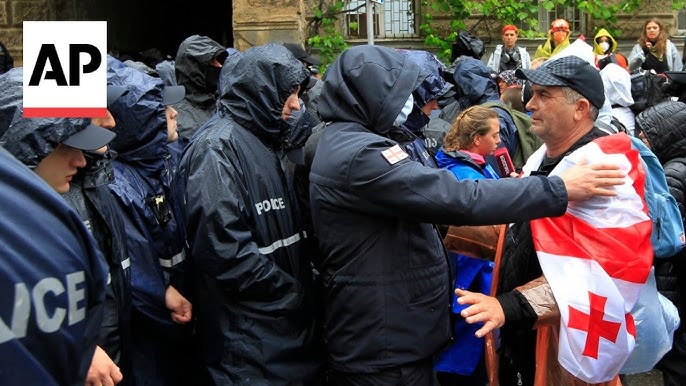Certain members of the legislature belonging to the Republican party from New York are voicing their thoughts about revoking a specific state law, known as the Green Light Law. Initiated in 2019, this law broadened accessibility to driver’s licenses for all residents living in New York, with their immigration status no longer serving as a hindrance. Additionally, barriers have been placed on the extent of data attainable by law enforcement from the Department of Motor Vehicles (DMV) through this law.
The cause to overturn the Green Light Law was taken up by Republicans from regions of New York sharing a border with Canada. They were backed by the county sheriffs from St. Lawrence County in their call to repeal the controversial law. The advocates of repealing the law argue that it undercuts law enforcement and poses challenges at the border.
Dan Stec, a legislator from the 45th District, termed the situation at the northern fringe of New York as a rising crisis. Stec highlighted that the Green Light Law hinders local law enforcement agencies from exchanging any immigration-related information with their counterparts. He presents this as a crucial consideration in the debate surrounding the law’s effectiveness and potential consequences.
In an effort to address this challenge, a legislative proposal has emerged, intending to lift the aforementioned law’s impact on counties that border other nations. Scott Gray, a member of the assembly from Watertown and representing the 116th District, relayed the importance of information sharing among law enforcement bodies in the execution of their duties and responsibilities.
Clinton County Sheriff, David Favro weighed in on the discourse by spotlighting the border-related challenges faced by their community. The county, which shares approximately 28 miles of its territory with the border, has recently witnessed a material surge in unlawful immigration incidents. This observation serves as one of the major driving factors behind the support for the repeal.
While Republican lawmakers from New York’s border counties were openly advocating the culmination of the Green Light Law, a contrasting perspective emerged from within New York’s Democratic representatives. Senator Kirsten Gillibrand introduced the Northern Border Security Enhancement and Review Act, intending to strengthen and revitalize the security situation at the northern edge of the state.
Gillibrand’s proposal presents a contrasting approach to border security, focusing not on repealing existing laws but rather enhancing current security mechanisms and methodologies. Her act poses a counterpoint to the Green Light Law debate, suggesting improvements to border security without withdrawing access to resources like driver’s licenses.
In spite of the growing clamor for repeal of the Green Light Law, Senator Gillibrand shared that she was not particularly aware of the calls advocating such a move. This could perhaps suggest a disconnect between the two main political factions on the matter.
The legislation proposed for repeal in New York, as it stands, pertains exclusively to the regions of the state sharing their borders with other countries. This specificity aims to address the concerns raised predominantly by law enforcement agencies and officials operating in these border districts.
The ongoing controversy surrounding the Green Light Law showcases the dynamic and multifaceted nature of immigration policy and border security. The debate is a microcosm of the broader national discourse around immigration, reflecting the differing stances of various political factions and law enforcement agencies.
On one hand, Republicans and certain county sheriffs urge for legislation that aids information sharing between law enforcement agencies and curbs potential threats from across the northern border. On the other hand, Democrats endeavor to strengthen border security without upending existing laws that broaden access to resources for immigrants.
Ultimately, it remains to be seen how these divergent proposals will navigate the legislative process and what impacts they will have on both border security and immigrant accessibility to services in New York state. It’s a unique challenge, balancing security concerns with the needs and rights of immigrant residents – a central theme of this ongoing legislative dispute.
The Green Light Law debate encapsulates a wider narrative on immigration policy, border security, and the role of law enforcement. It also underscores the varying perspectives amongst lawmakers as they juggle between ensuring tight borders and humane treatment of all residents. The push and pull of this political issue tangibly impacts the lives in the border communities; hence, its resolution carries profound significance.


